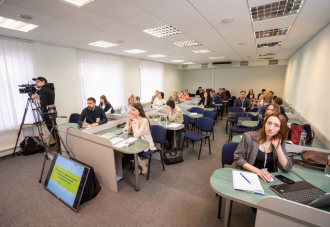ACCESS TO FINANCIAL SERVICES: is it free for civil society organizations and what are the restrictions imposed by government agencies?
Since Russia’s full-scale invasion into Ukraine, many of the usual transactions for non-profit organizations have become more complicated. Relations with the state authorities and banks have not been an exception when it comes to financial monitoring and access of Ukrainian civil society organizations (CSOs) to financial services.
Earlier, experts from the Centre for Democracy and Rule of Law (CEDEM) noted that most non-profit organizations are not aware of the nature of obstacles they face when working with banks. We are talking about the fact that our state has introduced Anti-Money Laundering/Combating the Financing of Terrorism legislation (AML/CTF). It is based on the standards of the Financial Action Task Force on Money Laundering (FATF).
In our opinion, this legislation needs very careful study and clear understanding by the public sector. After all, many European jurisdictions have recorded numerous cases of over-regulation in this area, which has negative consequences specifically for non-profit organizations – governments often justify strict measures of financial monitoring by the need to comply with FATF standards.
For example, financial institutions consider routine CSO transactions, such as money transfers to high-risk countries or receiving donations from various donors, to be risky due to counterterrorism and anti-money laundering protocols.
We would like to share the Practical Tips “Ensuring Access to Financial Services for CSOs” prepared by our colleagues at the European Center for Non-Profit Law (ECNL) and translated for your convenience.
As Liuben Panov, ECNL’s Chief Program Advisor, comments, “this material was created to provide practical assistance to CSOs in dealing with their numerous problems with access to financial services. It is important for CSOs to understand up front what requirements are put forward by banks. We believe that the Practical Guidelines provide simple steps that will help CSOs understand the nature of banks’ requirements and make it easier to use financial services.”
These Practical Tips provide an experience-based insight into the client risk profiling and monitoring practices at financial institutions. And therefore, they suggest what can be done in practice with typical “risk indicators” for banks, which are actually a routine activity for CSOs.
After all, the better CSOs understand the requirements of banks and financial monitoring bodies, the higher the quality of their cooperation will be. It would also be good if CSO donors and sponsors were aware of the difficulties that CSOs face when performing certain actions, such as opening a separate bank account and using funds to procure services abroad.
Understanding the problem is the first step toward solving it, so hopefully these materials will inspire the public sector to take a more responsible approach to protecting its own interests. And join the work that CEDEM, together with ISAR Ednannia and UCIPR, is doing to implement the provisions of the Legal Reforms Roadmap for Civil Society in Ukraine and to implement the National Strategy to Promote Civil Society Development in Ukraine.
CEDEM is now working to outline the possible AML/CTF risks for CSOs and to join this year’s National Risk Assessment carried out by the State Financial Monitoring Service. It is important that its recommendations do not have disproportionate consequences for CSOs and do not hinder their legitimate activities.
This material was prepared as part of the Project Ukraine Civil Society Sectoral Support Activity implemented by the Initiative Center to Support Social Action “Ednannia” in partnership with the Ukrainian Center for Independent Political Research (UCIPR) and Centre for Democracy and Rule of Law (CEDEM) with the sincere support of the American people through United States Agency for International Development.



